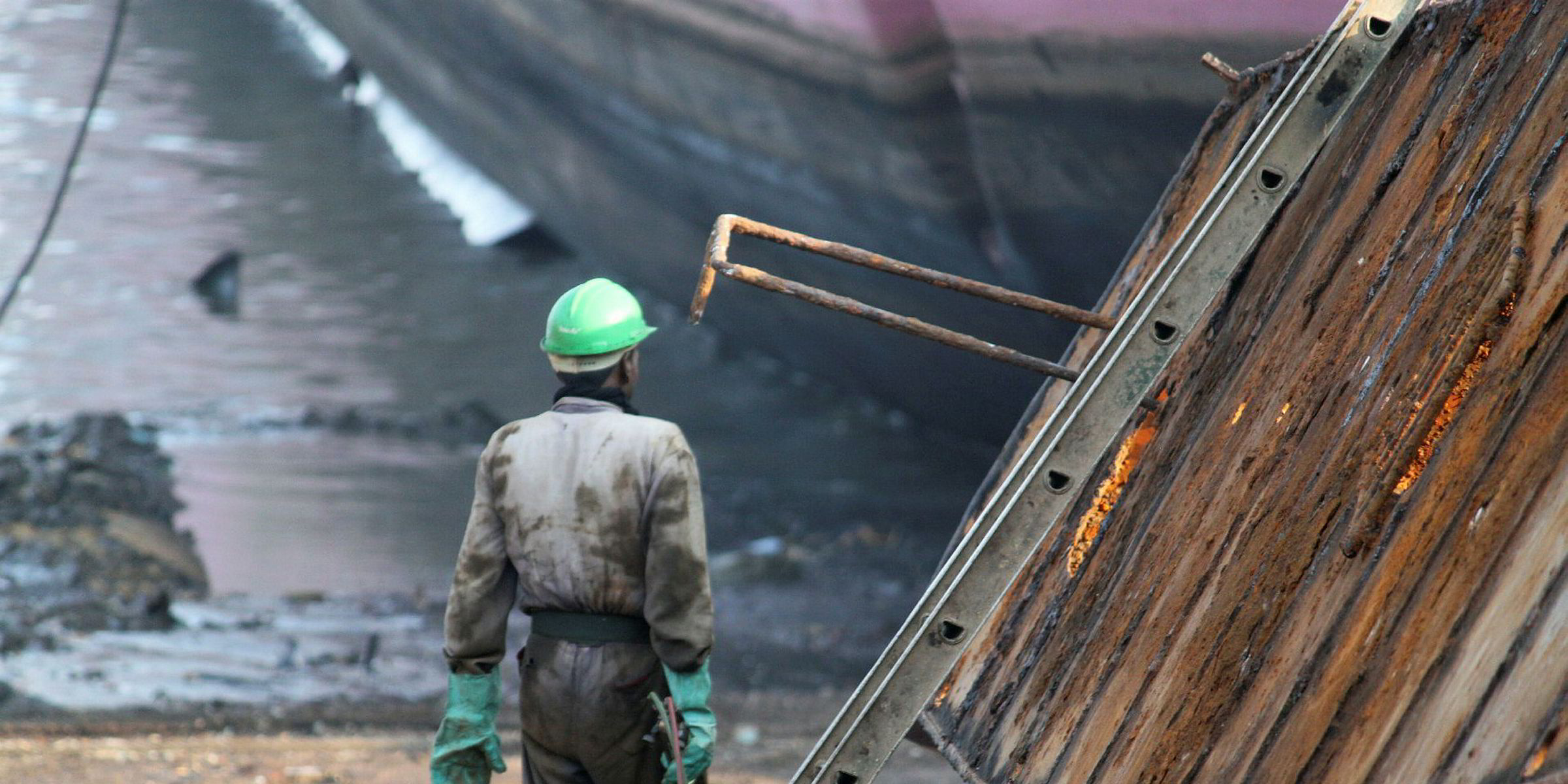Shipowners and cash buyers are being forced to think twice before selling European tonnage for demolition to South Asian beaching yards after a string of high-profile court cases have been brought over historic sales.
This week, TradeWinds exclusively reported that the Dutch public prosecutor is calling for three Seatrade executives responsible for the sale of four reefer ships to India, Bangladesh and Turkey in 2012 to be jailed.
In the ongoing trial in Rotterdam, Seatrade faces charges of breaching the European Union Waste Shipment Regulation, which requires hazardous waste materials to only be exported to countries belonging to the OECD.
The four ships sold were the 461,816-cbf Spring Bear, Spring Bob, Spring Panda and Spring Deli (all built 1984).
Prosecutors claim the vessels were sold for profit in the full knowledge of safety and environmental problems at Asian beaching yards.
The case against Seatrade is the first of its kind under the EU regulation.
Until now, errant shipowners have had ships detained and been forced to cancel vessel sales to Asian beaching yards, but none have faced criminal prosecution.
Seatrade strongly denies the charges, saying that it recycles ships responsibly. In a statement, Seatrade said: “We disagree with the prosecutor in relation to the charges that [the public prosecution service] has filed against us.”
In theory, any ship of any flag leaving an EU port for demolition in Asia could be subject to the regulation.
Pipeline of cases
One demolition broker told TradeWinds: “This case is making owners and cash buyers think very carefully about selling ships operating within Europe for demolition in Asia.
“It is now clear criminal charges could follow as long as six years in the future. More jurisdictions may follow the Dutch example. We are seeing this affect sales already.”
There are other similar cases pending. The 38,282-gt barge carrier Tide Carrier (built 1989) is under arrest in Norway. Public prosecutors are considering charges against cash buyer Wirana and the vessel’s owner, Eide Group, for the sale of the vessel to Gadani, in Pakistan, last year.
According to the Norwegian authorities the vessel declared it was heading for repair in Oman when it left Norway. But fire documentation later indicated it was heading for demolition in Pakistan.
Commenting on the case, environmental group NGO Shipbreaking Platform said: “[It] reveals the typical business practices of shipowners and cash buyers, and adds to other cases where authorities have been lied to and provided [with] false information as a way to escape checks for the illegal export of end-of-life ships.”
Other vessels that could find themselves subject to criminal charges under the EU regulation include the floating production storage and offloading vessel North Sea Producer (built 1984).
That ship sailed from the UK in May 2016, having informed authorities it was heading to Nigeria for further work. Instead, it was demolished in Bangladesh.
Potential prosecutions are a hot topic in Europe ahead of the massive decommissioning of the North Sea offshore fleet, which should be scrapped under EU rules.
And other regulations could also place further pressure on owners in the coming years.
The Hong Kong Convention for the Safe and Environmentally Sound Recycling of Ships is awaiting ratification, but it is likely to be upward of five years before it gets enough backing to enter into force.
Meanwhile, the European Ship Recycling Regulation needs further capacity if it is to handle the number of European vessels and offshore units coming up for demolition.
Private claims against owners for injury incurred during demolition could also encourage shipowners to avoid beaching yards.
As TradeWinds reported earlier, in a test case that could potentially spark hundreds of similar claims, Bangladesh shipyard worker Mohamed Edris is suing London-based Zodiac Maritime over serious injuries he sustained in demolishing the 915-teu containership Eurus London (built 1992).
In a statement to TradeWinds, Zodiac said that while it is “sympathetic” towards Edris, it holds no liability. “We deny any liability for those injuries and we dispute the claim” it said.



